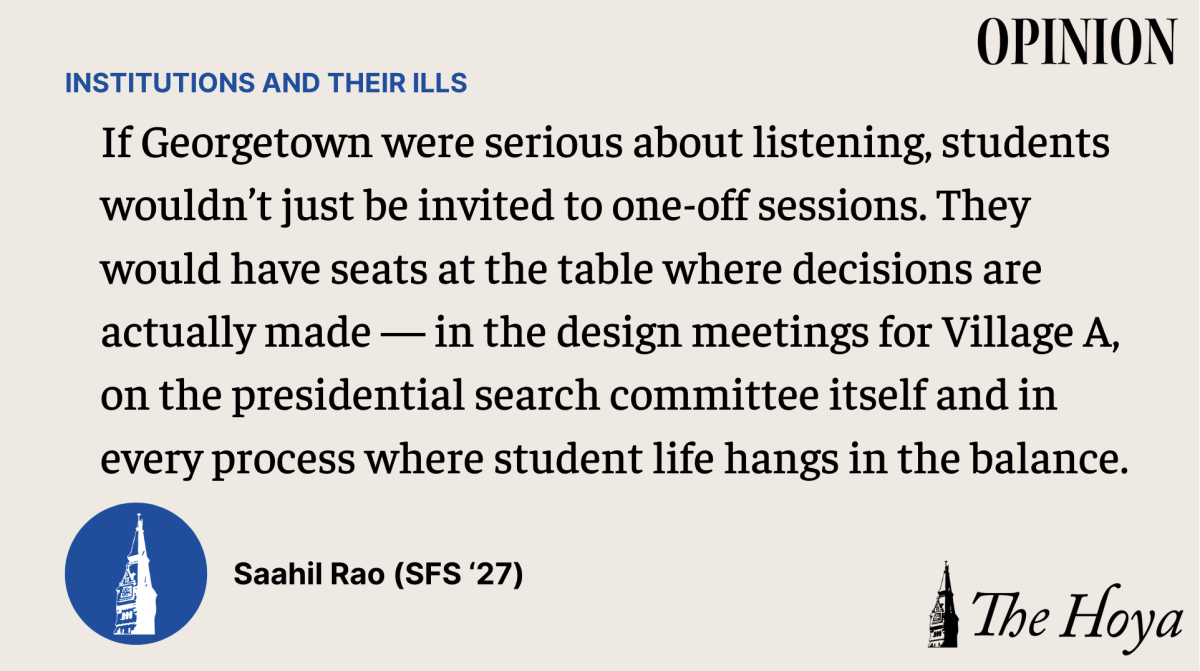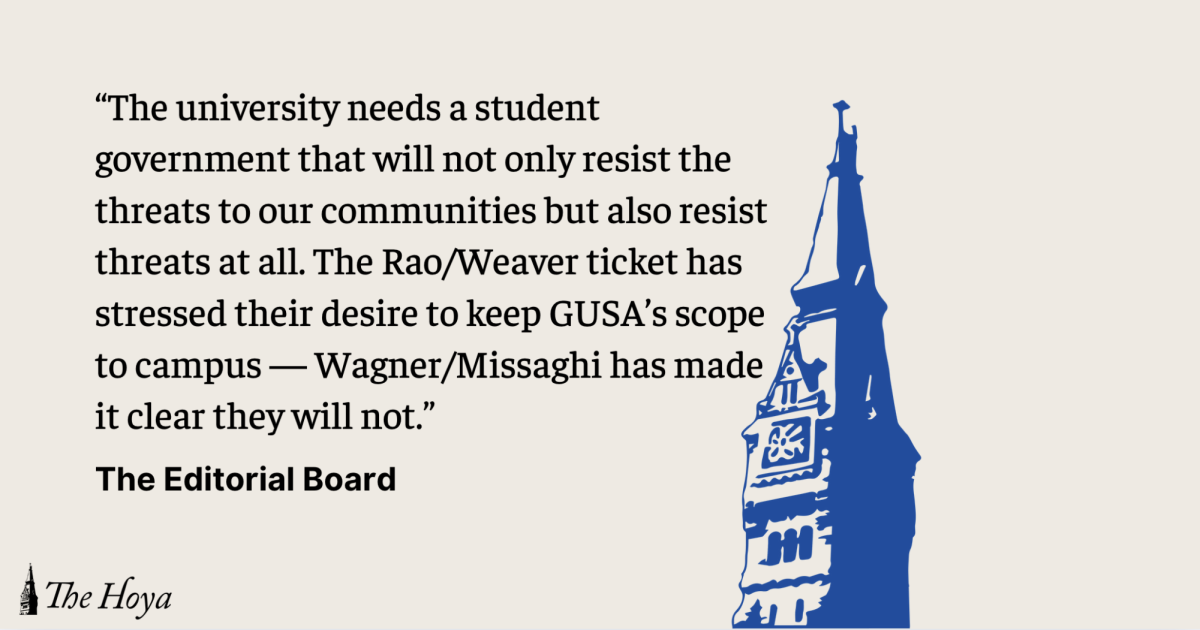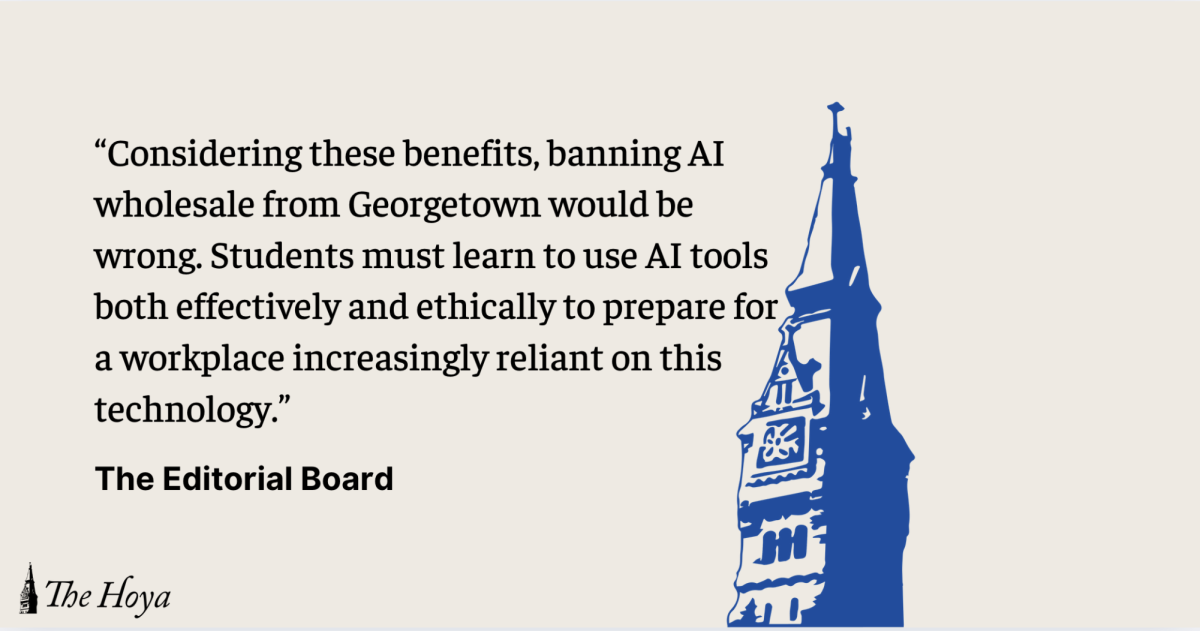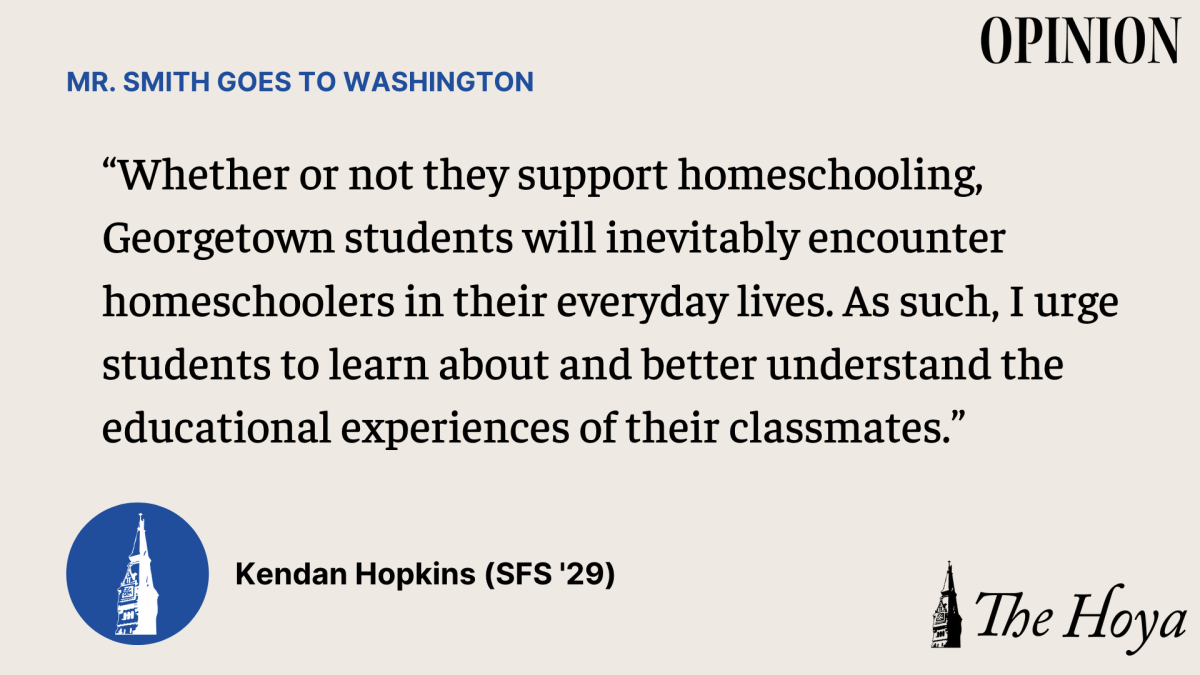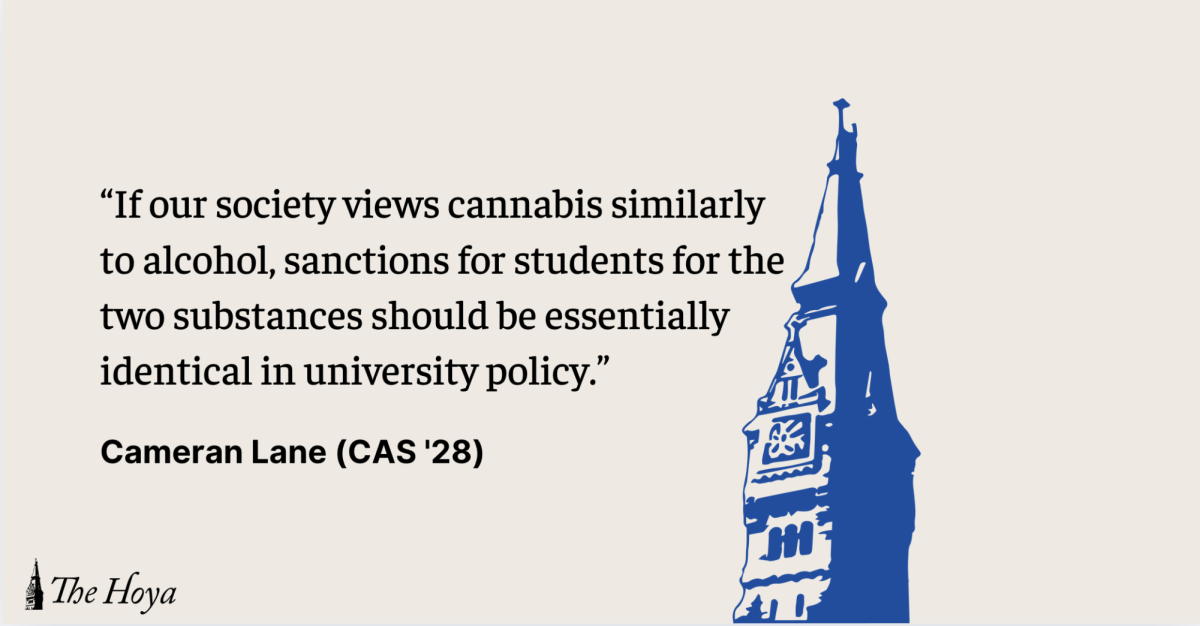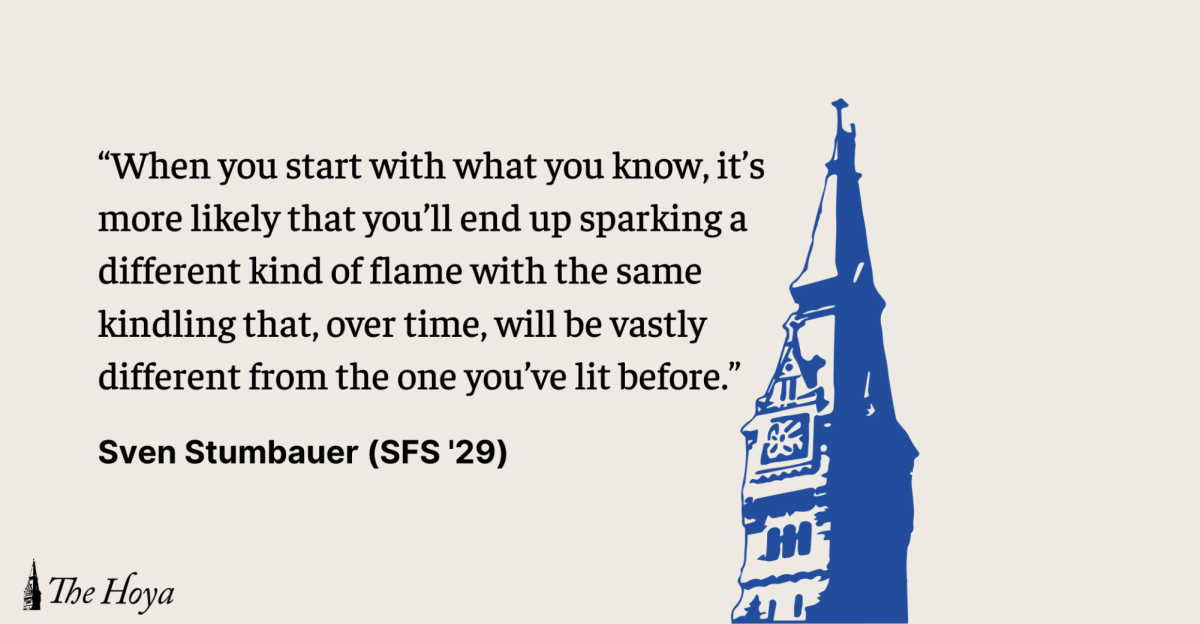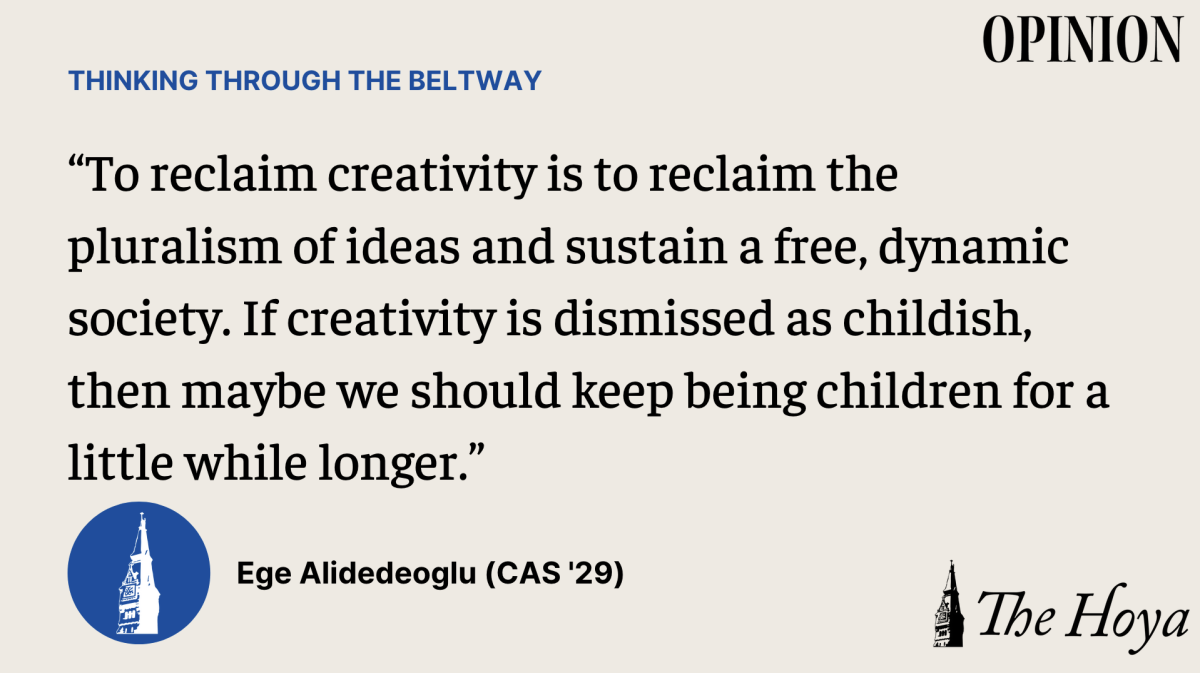I apologize for so soon again writing about Village A. It is, however, a topic that represents so much of the Georgetown student’s struggle: the fight to have our voices heard — and listened to — by the administration.
This past week, the university administration held two listening sessions — one private and one open to the public — about “The Future of Village A,” to ostensibly solicit student feedback on the renovation project. Based on my experience and the reports I’ve heard, the sessions were well-organized. They were efficient, simple and the administration present seemed genuinely receptive to students’ ideas about the Village A renovation, namely the overwhelming desire to preserve the rooftops as a social space.
Indeed, it is commendable that Residential Living (Res Living) provided a legitimate opportunity and forum for students to give feedback on this project. However, for students to have a voice in these decision-making processes, Georgetown must not only increase the accessibility of these feedback forums but also formally incorporate student members onto decision-making committees, as was frequently done in the past.
The Village A listening sessions’ existence was, in general, poorly communicated. The only manner that the public listening session was announced to the student body was on the Georgetown University Student Association (GUSA) Executive Instagram, with a singular post Sept. 26. To be clear, this is no fault of the GUSA Executive. They were given a date and time by Res Living and publicized it as best as they could. However, the problems with this limited approach are as plentiful as they are obvious. Not every Georgetown student has Instagram, follows GUSA or necessarily checks the account regularly. GUSA does have a way of reaching the entire student body — the bi-weekly newsletter — but its contents must be submitted to the university communications team one week in advance. The Village A listening sessions were announced to GUSA four days before they occurred, removing that as an option.
Res Living also failed to advertise or acknowledge the listening sessions, whether through their website or broader communication to students. Unless one has been closely following the issue, it may have almost seemed as though the listening sessions were just a GUSA initiative rather than an official Res Living event. Res Living has every tool at its disposal to reach students; it could have dispatched a campus-wide Hoya Housing email, sent a message through community directors or simply instructed Residential Assistants (RAs) to spread the word. Their decision to avoid advertising these sessions is worrying, at best.
Finally, the only people directly invited to any of the listening sessions were RAs, Res Living student employees and senior GUSA leadership. While some of the people who ended up at the listening sessions, such as myself, may have lived in Village A at some point, residents were likely not present in significant numbers. It makes little sense to not invite current residents in Village A, which could have been simple to do through either the community director or individual RAs. This was again a worrying oversight, something I hope didn’t prevent administration from getting an accurate picture about Village A’s strengths and weaknesses.
The point of this article is not to disparage Res Living, who, as previously stated, did a strong job on these events. Rather, it is to draw a connection between this instance and a broader concern of the student body. Last spring, the presidential search committee allowed for only one opportunity for live student feedback in a student-targeted listening session scheduled the day before spring break. Students and the GUSA Executive complained and The Hoya published an editorial condemning it. Then, everyone left campus, and by the time spring break ended, the uproar had faded — and the administration had successfully checked the box of “consultation.” This cannot be Georgetown’s standard operating procedure: Call one session, advertise it poorly, collect selective feedback and declare themselves responsive.
If Georgetown were serious about listening, students wouldn’t just be invited to one-off sessions. They would have seats at the table where decisions are actually made — in the design meetings for Village A, on the presidential search committee itself and in every process where student life hangs in the balance. This has happened before at this university, specifically in search committees for the highest administrative positions, and it can happen again. However, it requires a broader administrative culture of willingness to share power rather than stage-manage it.
To each department and division in charge of our university, please refrain from undermining students’ ability to voice their opinions, whether deliberate or not. If Georgetown wants to build a better future for Village A — or for this university’s student life in general — then it must do the simplest thing of all: Provide us a fair opportunity to give feedback and then actually listen.
Saahil Rao is a junior in the School of Foreign Service. This is the twelfth installment of his column “Institutions and Their Ills” and the third of the Fall 2025 semester.


